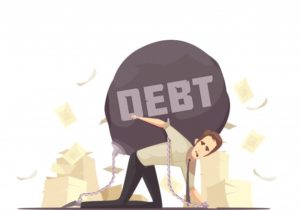If you currently have a backlog on your monthly payments, you might be wondering which is a better debt management plan: to file bankruptcy or enroll in a debt consolidation program? While some debtors would ultimately sign up for a debt settlement program to reduce debt, this article enumerates the benefits you will reap from choosing to declare bankruptcy instead. Should you want to explore the different types of bankruptcies and the process of filing, schedule an appointment with a bankruptcy attorney.
Although the bankruptcy law has been protecting consumers from being enslaved by debt problems or harassed by their creditors, any debt consolidation company may portray a scary image of bankruptcy filings and offer alternative debt solutions such as considering to negotiate a lower pay-off total amount with lenders, or availing its debt settlement services.
Below are four things a bankruptcy petition can offer that debt consolidation programs can’t.
Right after you submit your bankruptcy application, the court shall issue an “automatic stay” injunction which effectively prevents any lender or group from demanding payments. This is a temporary reprieve granted by the federal law that is not available with debt settlement companies. In fact, debt settlement firms may even ask you to not pay off debt so as to default on your loans. When this happens, you can expect the opposite scenario: aggressive debt collections, high interest, accrued penalties, and even lawsuits or garnishment of wages.

Under a debt settlement scheme, even if half of what you owe gets settled, the Internal Revenue Service (IRS) can treat your forgiven debt as “income”, thereby increasing the amount of your annual taxable income. But in a bankruptcy proceeding, debts that are discharged become exempted from being included in your income taxes.
Often, when some borrowers fail to reach a fair settlement through their chosen debt consolidation companies, they are left in a worse financial state than they were prior to enrollment. Some face years of fighting off a lawsuit filed by lenders or rebuilding their credit score. If indeed it is difficult for you to repay the amount owed, negotiating with creditors is an option offered under a Chapter 13 bankruptcy. This type of bankruptcy offers you protection by allowing a repayment plan which spreads out the remaining balance into a period of three to five years. This means that you wouldn’t have to empty all your bank accounts just to arrive at debt resolution.
If what stops you from choosing to file bankruptcy is the seemingly complex process, let one of our bankruptcy attorneys provide you with ease and do the filing for you. Moreover, if lack of familiarity with the different types of bankruptcies (Chapter 7 vs. Chapter 13) is keeping you from making that first step toward debt discharge, then you can call EZ Legal Fees by WantAFreshStart, LLC and listen and ask about the stories of other debtors who are now back on the road to financial freedom.
Thinking about a debt solution for medical bills, home mortgages, credit card debt, car loans, student loans, and other types of debt? Ask for a free consultation with a bankruptcy attorney from our law firm to start your debt-relief journey today.